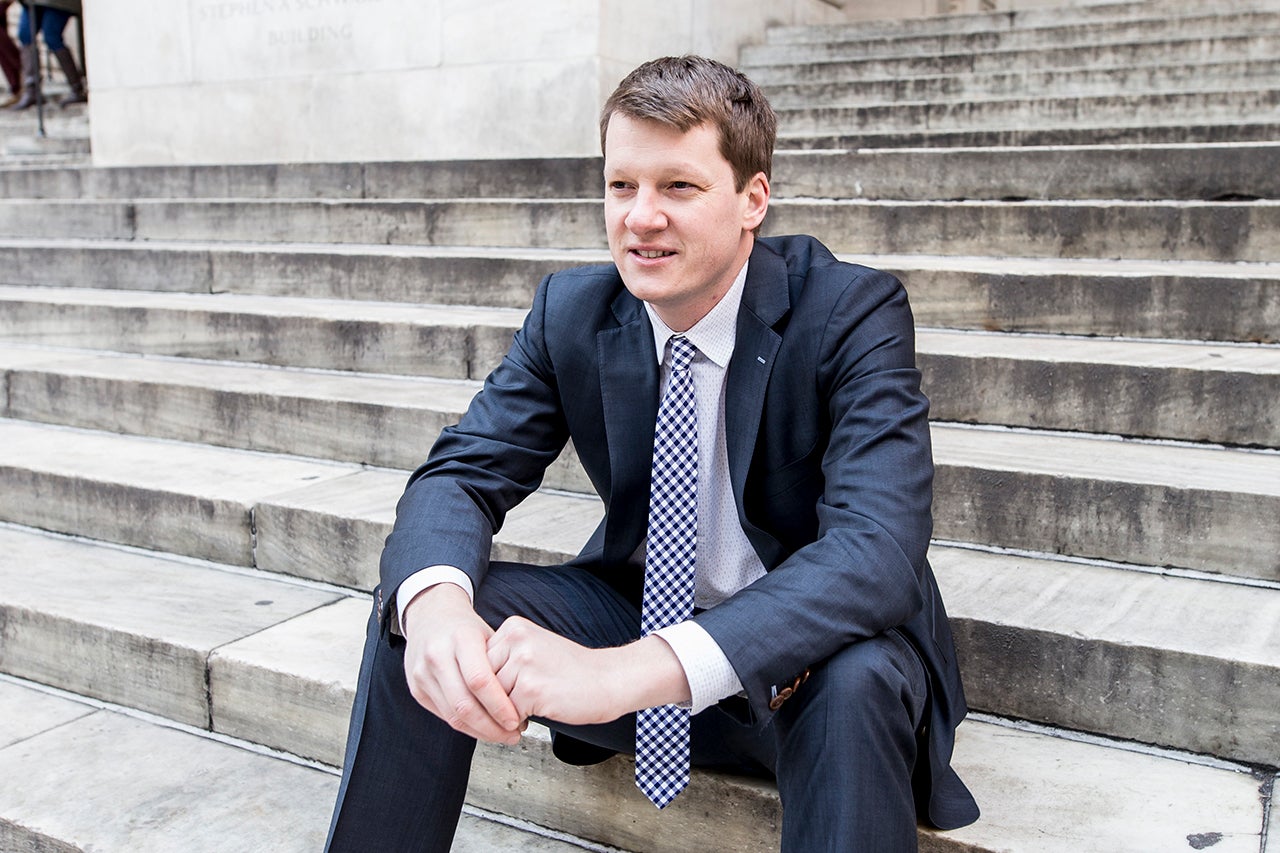You might assume that managing major initiatives for a renowned think tank would be worlds apart from studying political science as a college student. And you’d be right. But there is a connection. Just ask Jackson Ewing ’03.
As the Director of Asian Sustainability for the Asian Society Policy Institute in New York City, Ewing navigates the realm where international relations, environmental change and policymaking intersect. You’ll find his writings published in a range of journals and he’s a regular contributor to radio and television.
“Our business in the think tank world,” Ewing explains, “is to feed policy ideas to those in a position to turn them into concrete policies. My work involves promoting environmental cooperation, responsible resource development and progressive climate change policies in Asia and the U.S.”
Ewing’s outlook on natural resource use took shape during his time at the College when he participated in a sustainable renovation of the political science offices.
“We got to decide how to use the funds from a small grant, so we did some painting, insulating, changing out fixtures and windows, etc. We also monitored the electricity used in the building several times a day over the span of months to derive a base metric that could be correlated against the renovations,” he recalls. “It was a real, hands-on learning experience regarding sustainability.”
These days, much of Ewing’s time is occupied by attempting to spur cooperation between China, Japan and South Korea on their respective climate-change-mitigation strategies. “Our organization provides forums through which these nations can discuss cooperation on carbon market mechanisms and emissions trading schemes,” says Ewing. “Effectively, we’re helping them find ways to collaborate on trading emissions credits across linked markets in Northeast Asia.”
Ewing and his institute colleagues bring together people from the World Bank (who have experience growing carbon markets), academics (who have expertise in this field) and government officials who have gone through that process. “Europe already has linked carbon markets,” he explains, “so by bringing all these different people together and fostering structured conversations among them, I hope we can make similar progress in Asia.”
This is complex work, involving slow-moving processes. Consequently, these kinds of conversations can take a long time before results become manifest. “We often think in horizons of multiple years,” Ewing says. “But we call ourselves ‘a think and do tank’ because we measure our success by our tangible impacts, and so we look for ways to be impactful in the short and longer terms.”
Impact in this sphere requires diplomatic expertise, something Ewing developed and honed as a graduate student in Australia at Bond University, where he received his Ph.D., and at the S. Rajaratnam School of International Studies in Singapore, where he later worked for nearly four years. Those experiences, he says, “ultimately strengthened the bond I have with that part of the world.”
A particularly formative experience was the year he spent in the Philippines, studying the ongoing conflict between the government and separatist forces in the country’s southern regions. “I developed a historical overview of the root causes of the conflict and I argued that an overlooked driver was the desire by all parties to profit from the area’s resources,” he says. “The environmental destruction that was taking place as those resources were developed also reduced opportunities for local citizens and added to their grievances.”
Just as formative for his career, Ewing says, were the courses he took and the professors he had at CofC: “They opened my eyes to many trends and developments in the political world, ultimately steering me toward international affairs and diplomacy. My interest in the relationship between social systems and the natural world began then, and I furthered it through graduate school and pragmatic policy work, winding up where I am now.”
And therein lies the connection – not worlds removed from a college classroom, not even continents apart.





